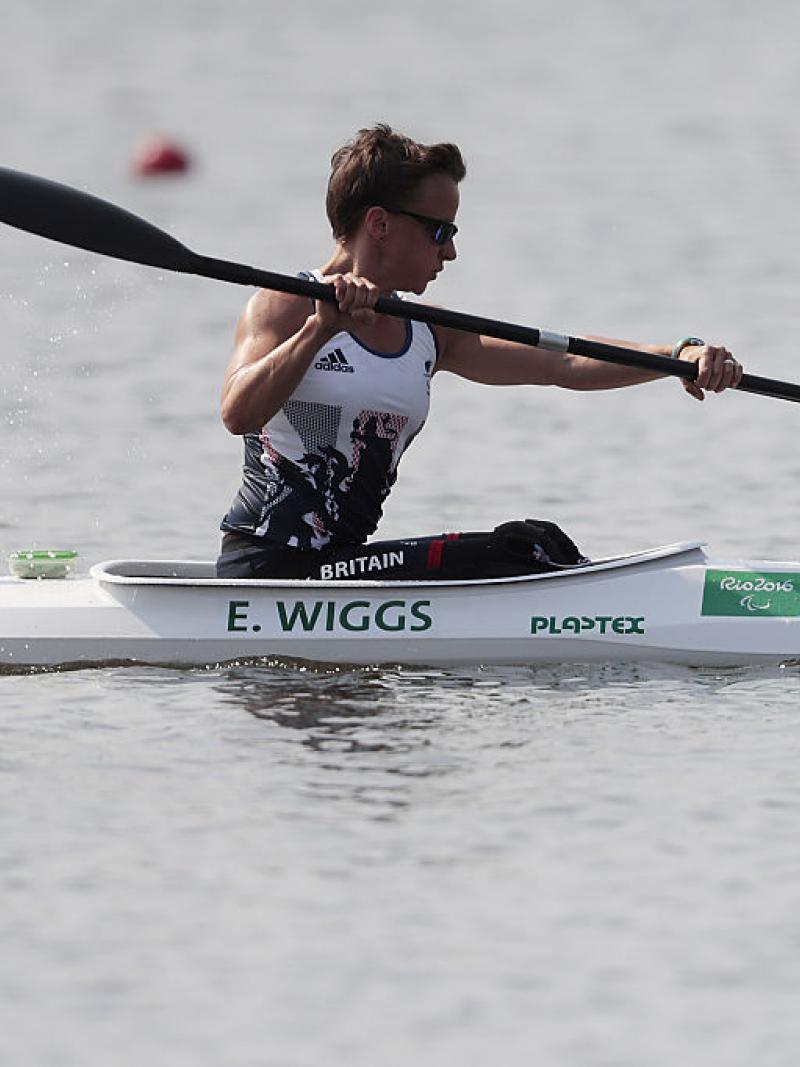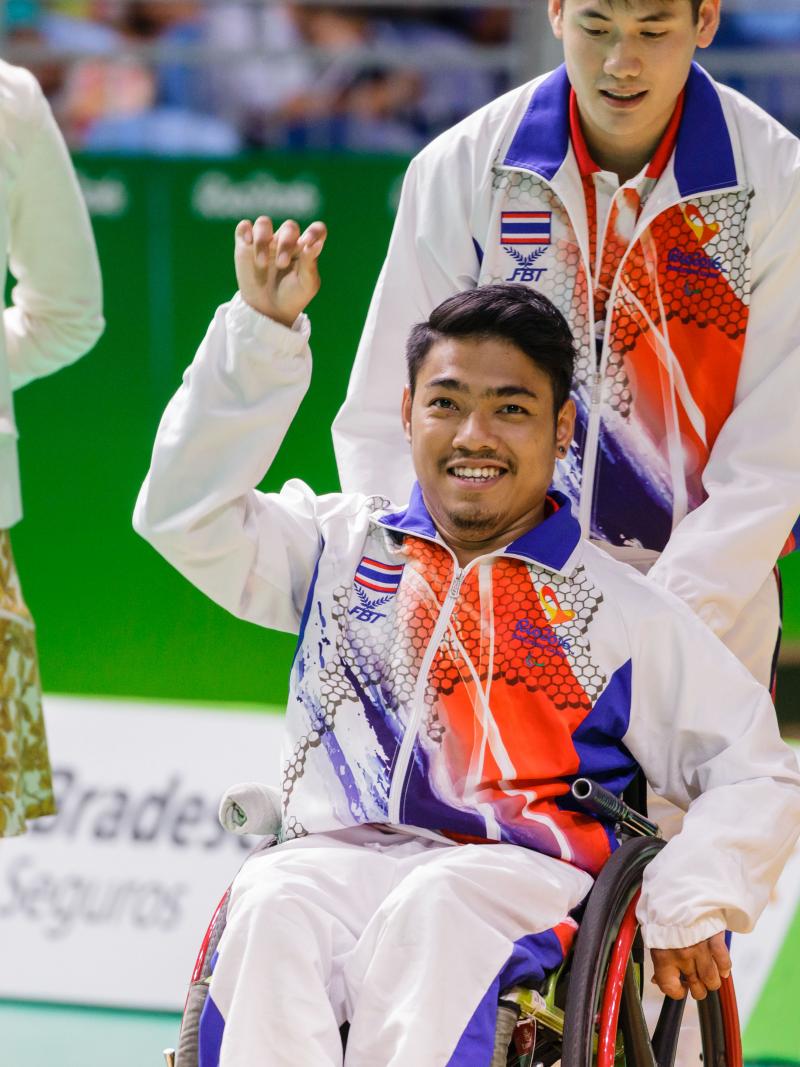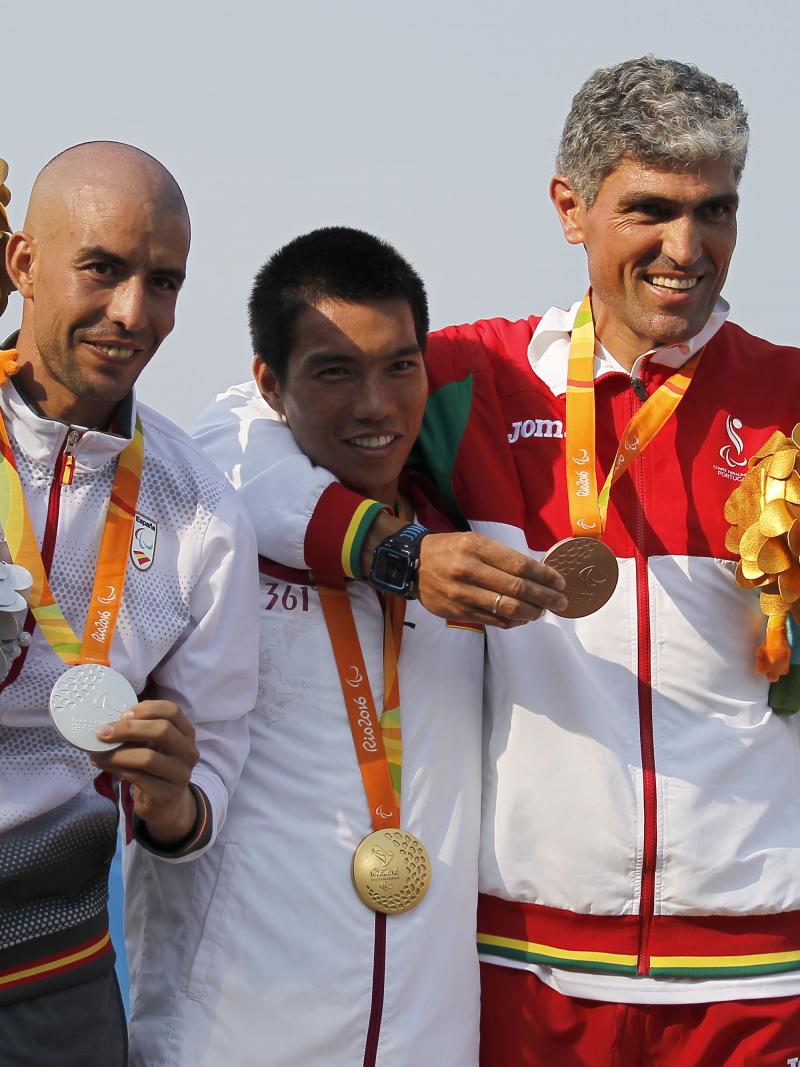Ten African athletes who starred at Rio 2016
From Nigeria’s powerlifting dominance to the four athletes who ran the 1,500m faster than the Olympic gold medallist, check out some of the best African Paralympians. 11 Oct 2016
Gold Medallist Bose Omolayo NGR competes in the Women's -79 kg Powerlifting contest at the Riocentro - Pavilion 2
Nigeria sealed eight golds, two silvers and two bronzes, South Africa rounded off the Paralympic Games with 17 medals overall and Tunisia took seven golds, six silvers and six bronzes, to end as the three most decorated African countries at Rio 2016.
A total of 13 African nations won at least one medal at September’s Games, four more than at London 2012, with Uganda, Mozambique and Cape Verde reaching the Paralympic podium for the first time ever.
Check out 10 African athletes who shined at Rio 206.
Abdellatif Baka (ALG)
In the men’s 1,500m T12/13, the 22-year-old took gold in a world record time of 3:48.29, slightly ahead of Ethiopia’s Tamiru Demisse (3:48.49). Kenya’s Henry Kirwa (3:49.59) completed the podium, whilst Baka’s brother Fouad crossed the line in 3:49.84. What made this race historical is that all four of them ran faster than USA’s Matthew Centrowitz, Jr., who won gold in the Olympic’s equivalent at August’s Games with a time of 3:50.00.
Mohamed Lahna (MAR)
The Moroccan 34-year-old was Africa’s sole representative in triathlon, which made in Rio its Paralympic debut. And he did not disappoint, claiming bronze in the men’s PT2 with a time of 1:12.35. Great Britain’s Andrew Lewis clocked 1:11.49 to take gold, followed by Italy’s Michele Ferrarin (1:12.30).
Josephine Orji (NGR)
With six golds, two silvers and one bronze, Nigeria dominated the powerlifting competition. Orji delivered some of the most outstanding performances in the women’s over 86kg, proving why she is also the reigning world and African champion. The 37-year-old achieved a world record lift of 154kg in her third attempt, taking gold ahead of Poland’s Marzena Zieba (134kg) and the Netherlands’ Melaica Tuinfort (130kg).
Sherif Osman (EGY)
For a third successive Paralympic Games, the Egyptian powerlifter claimed gold. Two years ago, Osman won the world title in the men’s up to 54kg in Dubai, United Arab Emirates, before switching to the up to 59kg. The 34-year-old lowered the world record in his new category in 2015 and went on to seal gold at Rio 2016, showing that he is still the strongest.
Samwei Mushai Kimani (KEN)
The Kenyan outdid in Rio his gold medal-performance from London 2012. On the first day of competition, Kimani benefitted from Chile’s reigning Paralympic champion Cristian Valenzuela’s injury to cross the line in first place in the men’s 5,000m T11. Kimani (4:03.25) added a second title in the 1,500m T11 on 13 October after overtaking Brazil’s world champion Odair Santos (4:03.85).
Ananias Shikongo (NAM)
Namibia’s main medal hopes at Rio 2016 rested on sprinter Ananias Shikongo, who two years ago sealed silver at the World Championships in Doha, Qatar. But the 30-year-old exceeded expectations at this year’s Paralympics, winning gold in the men’s 200m T11 and two bronzes in the 100m and 400m T11, to finish as his country’s most decorated Paralympian.
Ernst Van Dyk (RSA)
Eight years after winning his last gold, the South African cyclist returned to the top of the Paralympic podium in Rio. Van Dyk completed the men’s road race H5 in 1:37.49, finishing ahead of Italian legend Alessandro Zanardi and Dutch cyclist Jetze Plat. The 43-year-old has already won two golds, three silvers and three bronzes in cycling and athletics over seven Paralympic Games.
Maroua Ibrahmi (TUN)
After becoming double world champion in Doha, Qatar, last year, Ibrahmi proved ready to better her Paralympic performance from London 2012, when she sealed one gold and one bronze. In Rio, the 28-year-old first set a world record (26.93m) on her way to gold in the women’s club throw F31/32, and then added another title to her haul in the shot put F32 with a 5.76m throw.
David Emong (UGA)
Four years ago in London, Emong ended one step away from the Paralympic podium, as he finished fourth in the men’s 1,500m T46. But the 26-year-old improved at Rio 2016, where he took silver in the 1,500m T45/46 with a time of 4:00.62, just behind Algeria’s Samir Nouioua (3:59.46), to become Uganda’s first Paralympic medallist in history.
Hesham Elshwikh (EGY)
Twelve years after reaching the podium for the first time, claiming Paralympic bronze in Athens, Greece, the Egyptian men’s sitting volleyball team repeated such success in Rio following a hard-fought victory 3-2 against Brazil. Despite having the home crowd behind, the Games’ hosts could not overtake the African team and stop its captain Elshwikh, who scored 27 points and led Egypt to win a much-celebrated bronze medal.

 Facebook
Facebook
 Instagram
Instagram
 Twitter
Twitter
 Youtube
Youtube
 TikTok
TikTok
 Newsletter Subscribe
Newsletter Subscribe




